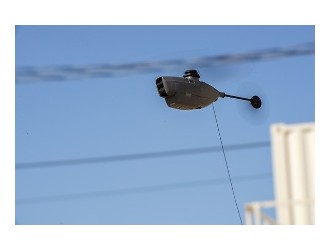At a lonely crossroads in the English countryside stands a small copse of trees, planted in 1972 to celebrate the defeat by locals of a plan to build a badly needed third airport for London in the area. Had the scheme gone ahead, the site occupied by Cublington Spinney today would have been at the centre of Britain’s largest airport. As it is, only birds fly there.
If the need to expand the UK’s runway capacity was acute in the 1970s, more than four decades later it is little short of an economic emergency. It is, however, no closer to being met. All of the 13 governments and nine prime ministers since the Cublington fiasco will have recognised the vital importance of this issue, but not one has managed to disrupt the apparently unbreakable cycle of inquiries, consultations, protests and abandoned plans.
There are twin ironies to be found in the shadow of the trees in Cublington Spinney, barely 50 kilometres north-west of Heathrow. One lies in the transformed meaning of the concrete slab at its heart, cast in the shape of Concorde, the revolutionary supersonic passenger aircraft that first flew in 1969 and which in 1972 was seen as the very embodiment of "the tyranny of technology" that the locals vowed to fight. Today, Concorde is no more and the slab serves only as a reminder of the commercial and technological leadership that Britain has steadily and almost wilfully thrown away.

he second irony lies in the date of the "victory" celebrated here in "midmost unmitigated England", as the self-satisfied wording on the nearby plaque has it (pinching the phrase from Henry James’s description of Warwickshire). In 1972, as the good folk of Buckinghamshire were celebrating the triumph of their not-in-my-backyard self-interest over the greater national good, over 5,500km away the fledgling United Arab Emirates was embarking on its first full year of nationhood and the finishing touches were being added to Dubai airport.
In the four decades since, guided by a leadership both willing and able to make big strategic decisions about the future in the interests not of a vociferous few but of an entire nation, the UAE has developed at a furious pace. The physical evidence of this is everywher, most obviously in the ever evolving skylines of the cities. But the most striking statistical confirmation that from the outset the UAE was determined that not even the sky would be the limit of its aspirations is the fact that last year, with 70 million passengers passing through, Dubai International overtook Heathrow to become the busiest airport in the world for international flights.
More than merely a tale of two airports, this is a story of two systems of government, two different ways of getting done the things that really matter.
Last month, in a gesture clearly designed to assuage post-Brexit market fears, the current British government announced it supported the conclusions of the latest commission into the vexed airport question, which after four years of consideration had recommended the construction of a third runway at London’s Heathrow. This appeared to be terrific news, albeit 50 years or so too late. The runway, said transport secretary Chris Grayling, would be "a major boost for the UK economy" and the decision underlined the government’s "commitment to keeping the UK open for business now and in the future".
But Britain has been here many times before and no major runway has been built in south-east England since the Second World War. The latest scheme will now be "taken forward" in the form of a "draft national policy statement for consultation". Already one Conservative MP has resigned the party whip on behalf of his Nimby electorate and inevitably the whole proposal will be bogged down, just like all its predecessors, by long-winded public consultations and years of legal challenges.
Even if all goes to plan, such will be the complexity of this process that Heathrow, already operating at capacity, will not get its third runway before 2030 – and quite probably not even by then, if at all. By contrast, by 2030 Dubai airports – Dubai International and the world’s future largest airport Al Maktoum International in Dubai World Central – are expecting to be handling 200 million passengers a year. In the meantime, the UK will become even less attractive as an international flight hub and slip farther and farther behind in the race to remain relevant in today’s fast-moving global economy.
Unsurprisingly, one word crops up frequently in the final report of the commission that has recommended the building of a third runway at Heathrow – "Dubai", mentioned no fewer than 16 times, typically with slack-jawed disbelief at how astonishingly its airport provision has developed in comparison with Heathrow’s.
Graphs in the report do some of the biggest talking. Among the most telling is one comparing the number of direct connections over the past 10 years to seven emerging markets from five major European hubs, including Heathrow, and from Dubai. In 2005 Dubai was already on a par with Heathrow and Paris, though lagging behind Frankfurt. By 2015 it was flying to 25 more destinations in countries such as China, India, Russia and Brazil than each of its nearest European rivals.
Even the number of domestic passengers from UK regional airports using Heathrow as a gateway to international travel has declined, with increasing numbers passing through Dubai as a hub. The "key reason", concluded the Airports Commission, was "the effect of runway capacity constraints in eroding Heathrow’s status as an international hub".
The frustration felt by Sir Howard Davies, the economist and businessman who chaired the commission, was palpable in his foreword to its report. The UK airport capacity problem had "perplexed governments for over 50 years", he wrote, even though "the considerable benefits of aviation accrue to the many, while the environmental costs are borne by the (relatively) few". Meanwhile, "other developed and developing countries face similar issues and have nonetheless been better able to provide infrastructure to keep pace with … growing demands".
From the perspective of the UK economy, the delay is avoidable madness – avoidable, that is, were the government free to act in the best interests of its people.
In his 1995 book The Death of Common Sense, the US lawyer and social commentator Philip K Howard painted a graphic picture of a nation that was "drowning … in law [and] bureaucratic process". The imperative of the common good had been sacrificed to "dogmas of fairness that allow self-interested individuals to bully the rest of society" and in which the voice of common sense had been replaced by "a cacophony of people claiming their ‘individual rights’."
There was, Howard noted in an afterword when the book was reissued in 2011, "nothing wrong with [any] society that can’t be fixed if humans in charge are free to make needed choices".
Howard was writing about America, but his criticisms could easily be applied to the UK, a once dynamic country in which the vital executive authority of elected governments, supposedly mandated at the ballot box and thus empowered by the voters to make the big strategic decisions on their behalf, has been eroded to the point wher institutional paralysis has all but set in.
Difficult and unpopular decisions are either deferred – another government will, after all, be along in another four years or so, let them sort it out – or, worse still, as the British are now discovering post-Brexit, left to the people in the form of a referendum, an abrogation of the responsibility conferred upon elected politicians by the electorate.
But perhaps nothing so dramatically illustrates the extent to which the UK government has been neutered as an effective decision-making executive body as the long-running and continuing farce that is the failure to boost Britain’s airports capacity.
If it isn’t already too late, there are clearly lessons the UK could usefully learn from Dubai. Air travel, both passenger and freight, is the lifeblood of modern global economies and airports are the arteries through which it flows. Allowing the self-interested few to block them is to ensure that the many will suffer the consequences of economic atherosclerosis.
As for those who once vowed that a new airport at Cublington would be built "over our dead bodies", it is tempting to imagine that these days some of them must surely find themselves surprised to be passing through Dubai. For them, and for those doubtless now rallying to oppose Heathrow’s proposed third runway, the lesson is this: if not in your backyard, then the seeds of future prosperity will take root in someone else’s.





